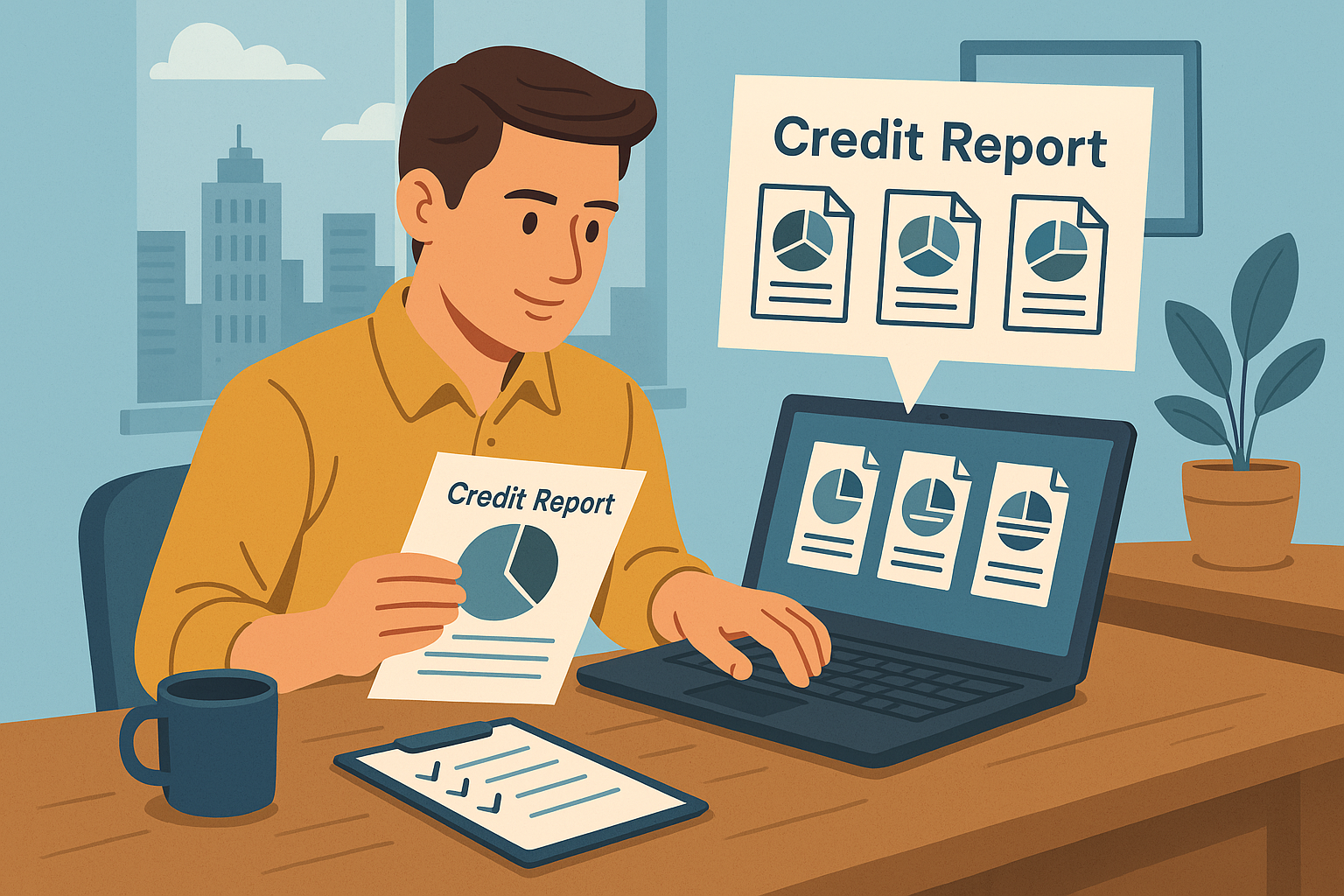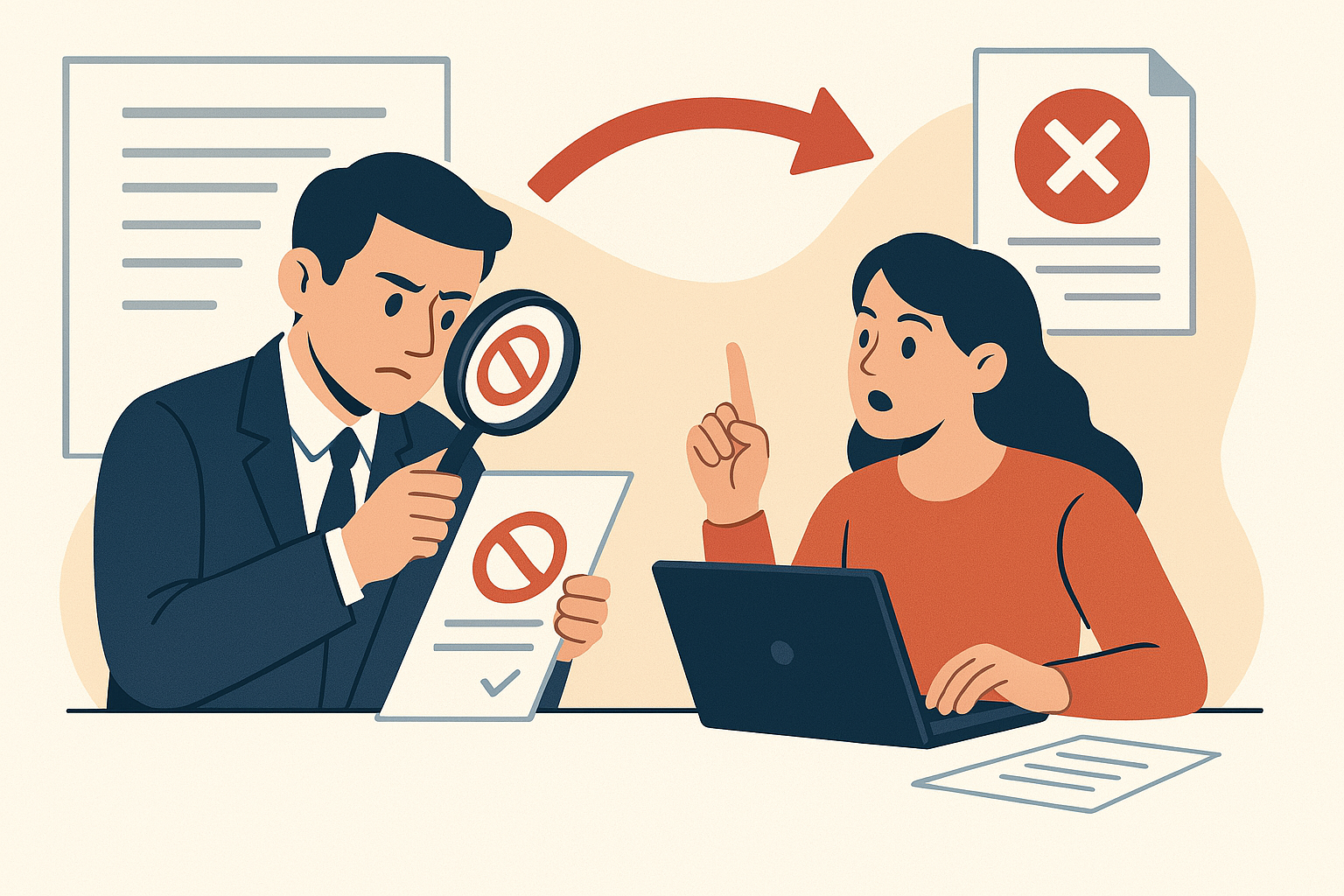How to Fix Your Credit Without Paying for a Credit Repair Service
If your credit score is holding you back from getting approved for loans, qualifying for lower interest rates, or reaching your financial goals, you’re not alone. Thousands of people are asking the same question every day: “How can I fix my credit?”
The good news? You don’t need to pay a credit repair company to do it for you. Credit reporting agencies play a crucial role in the credit repair process by providing accurate credit reports and allowing you to dispute inaccuracies.
In this guide, we’ll walk you through the exact steps you can take to repair and rebuild your credit on your own—legally, effectively, and without spending a dime on questionable services. We’ll also help you understand when (and if) a credit repair or debt consolidation service might make sense.
Step 1: Get Your Free Credit Reports for Credit Repair

Your credit report is your financial resume. It shows lenders how you’ve handled debt in the past and is the foundation of your credit score.
To start repairing your credit, it’s crucial to grasp your current status. Federal law grants you a free credit report annually from each of the three major credit bureaus: Equifax, Experian, and TransUnion. These credit reporting agencies offer these reports, providing consumers with access to their credit information. During and after the pandemic, these reports are available weekly.
Where to get them: AnnualCreditReport.com – This is the only site authorized by federal law to provide truly free credit reports from all three bureaus.
Download your reports, review each one carefully, and make notes of anything that seems off.
What’s in Your Credit Report?
Your credit report is a detailed record of your credit history, compiled by the three nationwide credit bureaus: Equifax, Experian, and TransUnion. Here’s what you’ll find in your credit report:
Personal Identifying Information: This includes your name, address, Social Security number, and date of birth. It’s crucial to ensure this information is accurate to avoid identity theft.
Credit Account Information: This section lists your credit card accounts, loans, and mortgages. It shows the type of account, the date it was opened, your credit limit or loan amount, account balance, and payment history.
Payment History: This is a record of your on-time payments, late payments, and any accounts sent to collections. Consistently making on-time payments is vital for maintaining a good credit score.
Public Records: This includes any bankruptcies, foreclosures, and tax liens. These negative marks can significantly impact your credit score.
Inquiries: This section shows who has requested your credit report. There are two types of inquiries: hard inquiries, which can affect your credit score, and soft inquiries, which do not.
Join the Wait List and Get 50% Off Your Subscription
Regularly reviewing your credit report ensures that all the information is accurate and up-to-date. Credit reporting agencies play a crucial role in providing accurate credit reports, which is essential for the credit repair process. You can request a free credit report from each of the three nationwide credit bureaus once a week at AnnualCreditReport.com.
How to Obtain and Review Your Credit Reports
Obtaining and reviewing your credit reports is a crucial step in maintaining good credit health. Here’s how to do it:
Get Your Free Credit Reports: Federal law entitles you to a free credit report from each of the three nationwide credit bureaus—Equifax, Experian, and TransUnion—once a week. Visit AnnualCreditReport.com to access your reports without any cost.
Check for Errors: Carefully review your credit reports for any errors or inaccuracies. Pay close attention to your personal information, account details, and payment history. Mistakes in these areas can negatively impact your credit score.
Dispute Errors: If you find any discrepancies, dispute them with the credit bureau that issued the report. You can do this online, by phone, or by mail. Providing documentation to support your claim can expedite the process.
Monitor Your Credit Reports: Regularly monitoring your credit reports ensures that any errors are corrected and no new inaccuracies appear. This proactive approach helps maintain accurate credit reporting and protects your credit score.
By following these steps, you can ensure that your credit reports are accurate and up-to-date, which is essential for effective credit repair.
Step 2: Identify and Dispute Any Errors

Did you know that 1 in 5 credit reports contain errors? These mistakes can drag down your score and hurt your chances of approval.
Look for things like:
Incorrect account balances
Accounts that don’t belong to you
Duplicate accounts
Missed payments that you actually made
Outdated negative information
How to dispute:
Each bureau has its own dispute process, which you can do online for free:
Credit reporting agencies play a crucial role in providing accurate credit reports. Understanding your credit report and disputing inaccuracies with these agencies is essential in the journey of improving your credit score.
You’ll need to include documentation to support your case. The bureaus usually have 30 days to investigate and respond. Transparency and due diligence are crucial in the credit repair process to ensure all inaccuracies are properly addressed.
Removing Negative Information from Your Credit History
Removing negative information from your credit history can be challenging, but it’s not impossible. Here are some steps you can take:
Dispute Errors: If the negative information on your credit report is incorrect, dispute it with the credit bureau. Provide evidence to support your claim, and the bureau will investigate and correct any inaccuracies.
Pay Off Debts: If the negative information is related to unpaid debts, paying them off as soon as possible can help. Once the debt is settled, you can request the creditor to update your credit report.
Negotiate with Creditors: If you’re struggling to pay off a debt, negotiate with your creditors. Sometimes, they may agree to remove negative information from your credit report in exchange for payment or a payment plan.
Wait It Out: If the negative information is accurate, it will eventually be removed from your credit report after a certain period (usually 7-10 years). In the meantime, focus on building positive credit habits to improve your overall credit score.
By taking these steps, you can work towards removing negative information from your credit history and improving your credit score over time.
Step 3: Pay Down Credit Card Balances Strategically

One of the fastest ways to improve your credit score is to reduce your credit utilization ratio—that is, the amount of credit you’re using relative to your total available credit.
Tip: Aim to use less than 30% of your available credit on any card. Ideally, keep it under 10% for the best results.
If you can’t pay off everything at once, focus on paying down:
Cards that are maxed out
Cards with the highest interest rates
Cards closest to 30% utilization
Even a small reduction in balances can lead to a noticeable score improvement.
Managing Credit Accounts
Effectively managing your credit accounts is crucial for maintaining good credit health. Here are some tips to help you stay on track:
Keep Credit Utilization Low: Aim to keep your credit utilization ratio below 30%. This means using less than 30% of your available credit on any card. Ideally, keeping it under 10% can yield the best results for your credit score.
Make On-Time Payments: Consistently making on-time payments is vital. Set up reminders, create a payment calendar, or enroll in autopay to ensure you never miss a due date.
Avoid Opening Too Many Accounts: Opening multiple credit accounts in a short period can negatively impact your credit score. Be selective and only open new accounts when necessary.
Monitor Your Credit Accounts: Regularly check your credit accounts for any errors or unauthorized activity. This helps you catch potential issues early and maintain accurate credit reporting.
By following these tips, you can manage your credit accounts effectively and maintain a healthy credit score.
Step 4: Make Every Payment On Time

Your payment history makes up the largest portion of your credit score—about 35%. That means missing just one due date can have a serious negative impact.
Set reminders, create a calendar, or enroll in autopay to make sure you never miss a payment again.
If you’ve already missed some payments:
Get current as soon as possible
Keep making on-time payments moving forward
The longer you pay on time, the more your score can recover
Step 5: Add Positive Payment History With RentCred

Here’s a powerful credit-building tip that many renters don’t know:
Your rent payments typically don’t show up on your credit report. But they can—and they should.
By using a rent reporting service like RentCred, you can have your on-time rent payments reported to major credit bureaus. This helps you build a consistent history of on-time payments, which can boost your score without taking on new debt.
If you’re already paying rent each month, this is a no-brainer.
Why RentCred works:
Adds tradelines to your report that reflect your rental history
Helps establish or improve credit without a credit card or loan
Builds payment history over time—the most important part of your score
Ready to turn your rent into credit-building power? Start here with RentCred
Credit Counseling and Debt Management Plans
If you’re struggling with debt, credit counseling and debt management plans can be a helpful solution. Here’s what you need to know:
What is Credit Counseling?: Credit counseling is a service that helps you manage your debt and improve your credit health. A credit counselor can provide personalized advice and create a plan to tackle your financial challenges.
What is a Debt Management Plan?: A debt management plan (DMP) is a structured repayment plan that helps you pay off your debts over time. It consolidates your debts into a single monthly payment, often with reduced interest rates.
How to Find a Credit Counselor: Look for a credit counselor through a non-profit credit counseling agency or a reputable credit counseling company. Ensure they are accredited and have positive reviews.
Benefits of Credit Counseling: Credit counseling can help you reduce your debt, improve your credit score, and avoid bankruptcy. It provides a clear path to financial stability and helps you develop better money management skills.
By considering credit counseling and debt management plans, you can take proactive steps to manage your debt and improve your credit health.
Timeframe for Rebuilding Credit
Rebuilding credit takes time, but with consistent effort, you can improve your credit score. Here’s a general timeframe for rebuilding credit:
Short-term (3-6 months): Within a few months of making on-time payments and reducing debt, you can start to see improvements in your credit score. Small positive changes can make a noticeable difference.
Medium-term (6-12 months): As you continue to make on-time payments and reduce debt, you can see significant improvements in your credit score. Consistency is key during this period.
Long-term (1-2 years): With sustained effort, you can achieve a good credit score. This opens up opportunities for better loan terms, lower interest rates, and improved financial stability.
Remember, the timeframe for rebuilding credit can vary depending on individual circumstances. Stay committed to good credit habits, and over time, you’ll see your credit score improve.
By following these steps and maintaining a proactive approach, you can take control of your credit repair journey and achieve your financial goals.
How Credit Scores Work

Your credit score is a three-digit number that represents your creditworthiness, calculated based on the information in your credit report. Here’s a breakdown of the factors that influence your credit score:
Payment History (35%): This is the most significant factor. It reflects whether you’ve paid your past credit accounts on time.
Credit Utilization (30%): This is the ratio of your current credit card balances to your credit limits. Keeping this ratio below 30% is ideal.
Length of Credit History (15%): This considers the age of your oldest credit account, the age of your newest account, and the average age of all your accounts.
Credit Mix (10%): This looks at the variety of credit accounts you have, such as credit cards, mortgages, and installment loans.
New Credit (10%): This includes the number of recently opened accounts and the number of recent inquiries.
Credit scores range from 300 to 850, with higher scores indicating better credit. Here’s a quick guide to the different credit score ranges:
Excellent Credit: 750-850
Good Credit: 700-749
Fair Credit: 650-699
Poor Credit: 600-649
Bad Credit: Below 600
Understanding how these factors impact your credit score can help you make informed decisions to improve your creditworthiness.
Should You Use a Credit Repair or Consolidation Service?

If fixing your credit seems daunting, you might consider hiring a credit repair service. While some are legitimate, many charge high fees for tasks you can handle yourself and may use risky tactics.
Here’s what to know:
Credit Repair Services:
Can’t remove accurate, negative information (no matter what they promise)
Typically charge monthly fees or large upfront costs
Use the same dispute channels you can access for free
It is important to contact both the credit bureau and the reporting business when disputing errors
May make unrealistic promises or guarantees (a red flag)
Debt Consolidation Services:
Can be helpful for those overwhelmed with high-interest debt
Often involve taking out a new loan to pay off multiple debts
May include fees or impact your credit in the short term
Maintaining accurate credit reporting is crucial as it affects credit scores over time
Bottom line: Be cautious. Research thoroughly, read reviews, and avoid companies that promise “overnight results” or require large upfront payments.
Signs of a Credit Repair Scam
Credit repair scams can be tricky to identify, but there are several red flags to watch out for:
Promises to Remove Accurate Information: Be wary of any company that claims it can remove accurate and current information from your credit report. This is not possible.
Upfront Fees: Legitimate credit repair companies will not ask for payment before services are rendered. If a company requests upfront fees, it’s a major red flag.
Guaranteed Results: No company can guarantee a specific credit score or outcome. Be cautious of any promises that sound too good to be true.
New Credit Identity: Avoid any company that advises you to create a new credit identity or hide your bad credit history. This is illegal and can lead to severe consequences.
Pressure Tactics: Legitimate companies will give you time to make an informed decision. If you feel pressured to sign a contract or make a quick decision, it’s best to walk away.
Always ensure that any credit repair company you consider working with provides a written contract detailing the services they will perform. This transparency is a hallmark of legitimate credit repair companies.
What is the Credit Repair Organizations Act?
The Credit Repair Organizations Act (CROA) is a federal law designed to protect consumers from deceptive practices by credit repair companies. Here’s what the CROA requires:
Written Contract: Credit repair companies must provide a written contract that includes a detailed description of the services to be performed.
Explanation of Rights: Companies must explain your rights under the law and provide transparent services.
No Upfront Fees: Companies cannot charge upfront fees or require payment before services are rendered.
Truthful Statements: Companies must not make false statements about what they can do for you.
Right to Cancel: You have the right to cancel the contract within three days without any penalty.
The CROA also prohibits credit repair companies from advising you to create a new credit identity or hide your bad credit history. Working with a reputable credit repair company that complies with the CROA ensures you receive honest and legal services.
By understanding your rights and the regulations in place, you can make informed decisions and avoid falling victim to credit repair scams.
Final Thoughts: You Can Fix Your Credit
Improving your credit isn’t about quick fixes or shortcuts—it’s about understanding the system and making consistent progress.
You don’t need to be perfect. You just need to take control.
Let’s recap the smart, simple steps to fix your credit:
Get your credit reports and review them
Dispute any errors you find
Pay down balances and keep utilization low
Pay on time, every time
Add positive history by reporting your rent with RentCred
With a little time and commitment, you can take real control of your financial future.
Ready to get credit for your rent payments? Start building your credit with RentCred today.